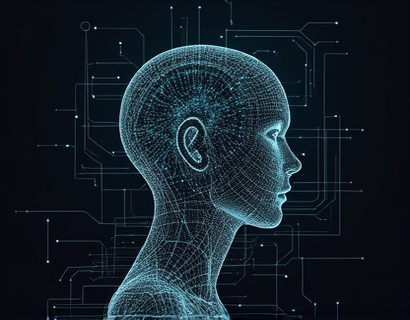AI-Powered Legal Automation: Revolutionizing Efficiency and Insights for Legal Experts
In the rapidly evolving landscape of legal services, the integration of artificial intelligence (AI) is transforming the way legal professionals operate. AI-powered legal automation is not just a trend but a revolution that is redefining efficiency, accuracy, and insights in the legal field. This advanced technology automates complex tasks such as document analysis, case research, and compliance checks, significantly reducing the time and costs associated with these processes. By harnessing the power of AI, legal experts can focus on high-value tasks that require human intuition and expertise, thereby delivering exceptional services and maintaining a competitive edge in the market.
Enhancing Document Analysis with AI
One of the most impactful applications of AI in legal automation is document analysis. Traditional methods of reviewing and analyzing legal documents are time-consuming and prone to human error. AI-driven tools can process vast amounts of data quickly and accurately, identifying key information, extracting relevant data, and summarizing documents with precision. This capability is particularly valuable in areas such as contract review, where the ability to swiftly identify critical terms and conditions can save significant time and resources.
AI algorithms are trained on extensive legal databases, enabling them to understand complex legal language and context. This training allows the tools to flag potential issues, such as ambiguous clauses or non-compliant provisions, alerting legal professionals to take necessary actions. The automation of document analysis not only accelerates the review process but also enhances the quality of the analysis, leading to more informed decision-making.
Streamlining Case Research
Case research is a fundamental aspect of legal practice, yet it can be a daunting task due to the sheer volume of legal precedents and case law. AI-powered legal automation tools revolutionize this process by providing rapid and comprehensive access to relevant case law. These tools can sift through millions of legal documents and cases, extracting pertinent information and presenting it in a structured and easily digestible format.
By automating case research, legal professionals can save countless hours that would otherwise be spent manually searching for and reviewing case law. This efficiency gain allows lawyers to focus on analyzing the data provided by AI tools, drawing deeper insights, and formulating more robust legal strategies. The ability to quickly access and understand relevant case law is a significant advantage in courtrooms, where timing and precision are crucial.
Ensuring Compliance with AI
Compliance is a critical concern for legal professionals, especially in industries governed by stringent regulations. AI-powered legal automation tools offer robust solutions for compliance checks, ensuring that documents and practices adhere to legal standards. These tools can continuously monitor and analyze legal changes, updating compliance protocols in real-time.
The automation of compliance checks reduces the risk of human error and ensures that legal practices remain up-to-date with the latest regulatory requirements. This is particularly important in areas such as data protection, anti-money laundering, and securities law, where non-compliance can result in severe penalties. By leveraging AI, legal teams can maintain a proactive approach to compliance, minimizing risks and safeguarding their clients' interests.
Improving Client Outcomes
The ultimate goal of legal services is to deliver exceptional outcomes for clients. AI-powered legal automation directly contributes to this objective by enhancing the efficiency and accuracy of legal work. With AI handling time-consuming tasks, legal professionals can dedicate more time to strategic planning, client communication, and problem-solving.
Clients benefit from faster turnaround times, more thorough analyses, and a higher level of service. The ability to quickly resolve legal issues and provide timely advice strengthens client relationships and builds trust. Moreover, the insights generated by AI tools can inform clients about potential risks and opportunities, enabling them to make more informed decisions.
Empowering Legal Professionals
AI-powered legal automation does not replace legal professionals but rather empowers them to work more effectively. By automating routine tasks, AI frees up legal experts to focus on high-value activities that leverage their unique skills and expertise. This shift allows lawyers to engage more deeply with clients, develop innovative legal strategies, and contribute to the broader legal community.
The integration of AI tools also facilitates continuous learning and professional development. Legal professionals can leverage AI-generated insights and data to stay abreast of legal trends and best practices. This access to real-time information and advanced analytics enhances their ability to provide cutting-edge legal services.
Challenges and Considerations
While the benefits of AI-powered legal automation are substantial, there are challenges and considerations that legal professionals must address. One key concern is the accuracy and reliability of AI tools. Ensuring that these tools are trained on high-quality, up-to-date legal data is essential to avoid errors and misinterpretations. Legal professionals must also remain vigilant in reviewing AI-generated outputs to maintain the highest standards of legal practice.
Another consideration is the ethical use of AI in legal contexts. Issues such as data privacy, bias in AI algorithms, and the potential for over-reliance on technology must be carefully managed. Legal professionals and technology providers must collaborate to establish ethical guidelines and best practices for the use of AI in legal automation.
Future Prospects
The future of AI-powered legal automation is promising, with ongoing advancements expected to further enhance its capabilities. As AI technology continues to evolve, we can anticipate more sophisticated tools that not only automate existing tasks but also predict legal outcomes and provide proactive advice. The integration of AI with other emerging technologies, such as blockchain and natural language processing, will open new possibilities for legal innovation.
Legal professionals who embrace AI-powered automation will be better positioned to thrive in the digital age. By adopting these tools, they can streamline their practices, improve efficiency, and deliver superior services to their clients. The combination of human expertise and AI-driven insights will set a new standard for legal practice, driving the industry toward greater excellence and efficiency.










































